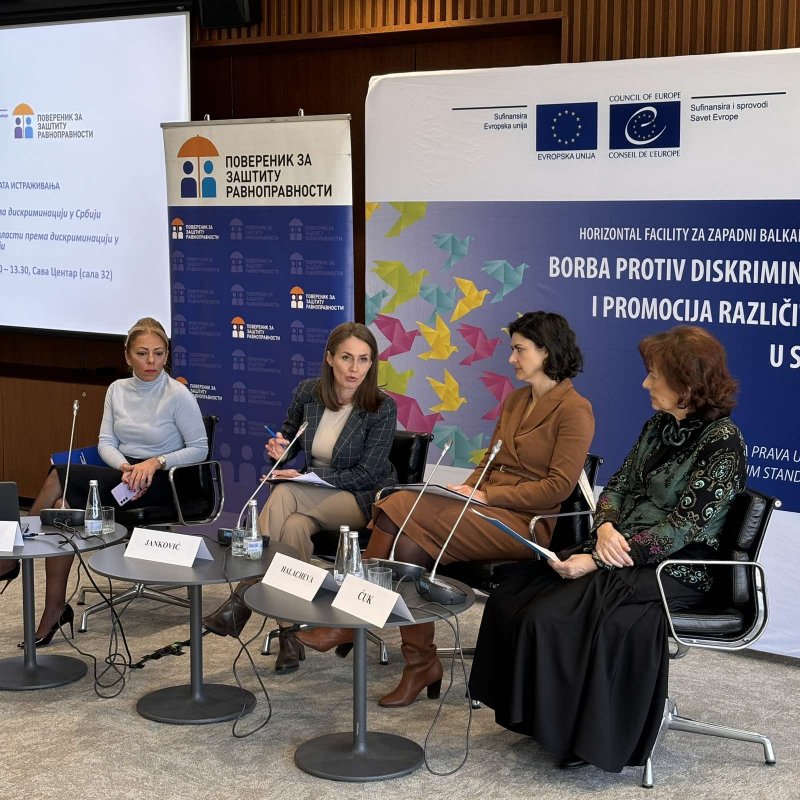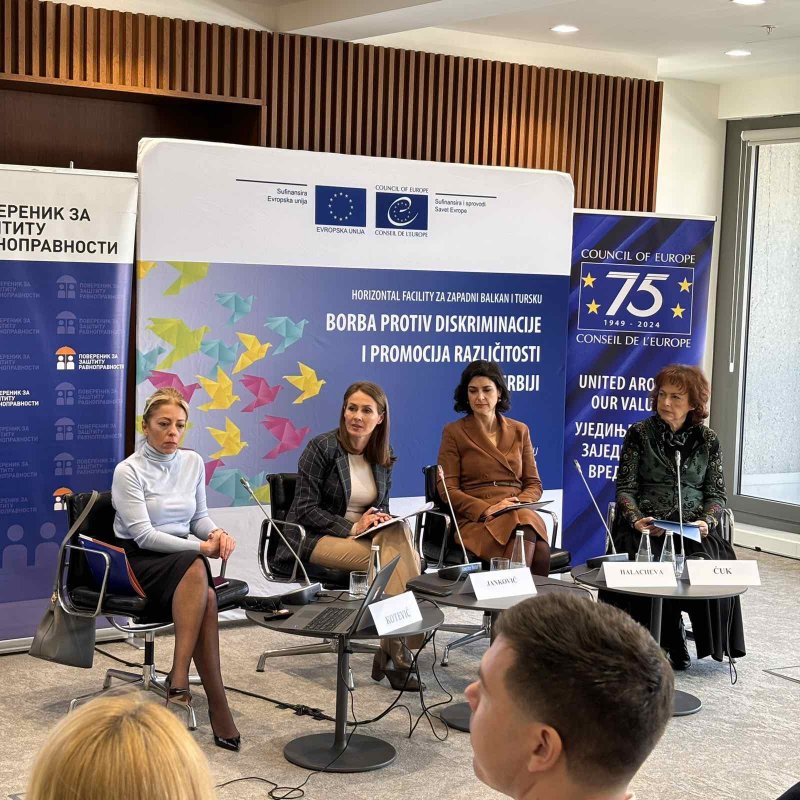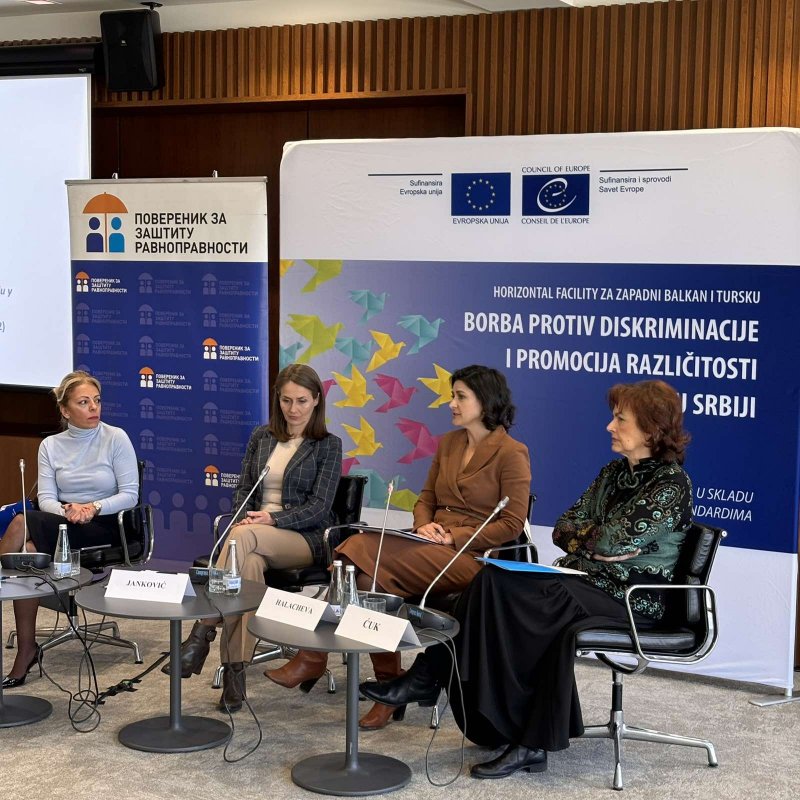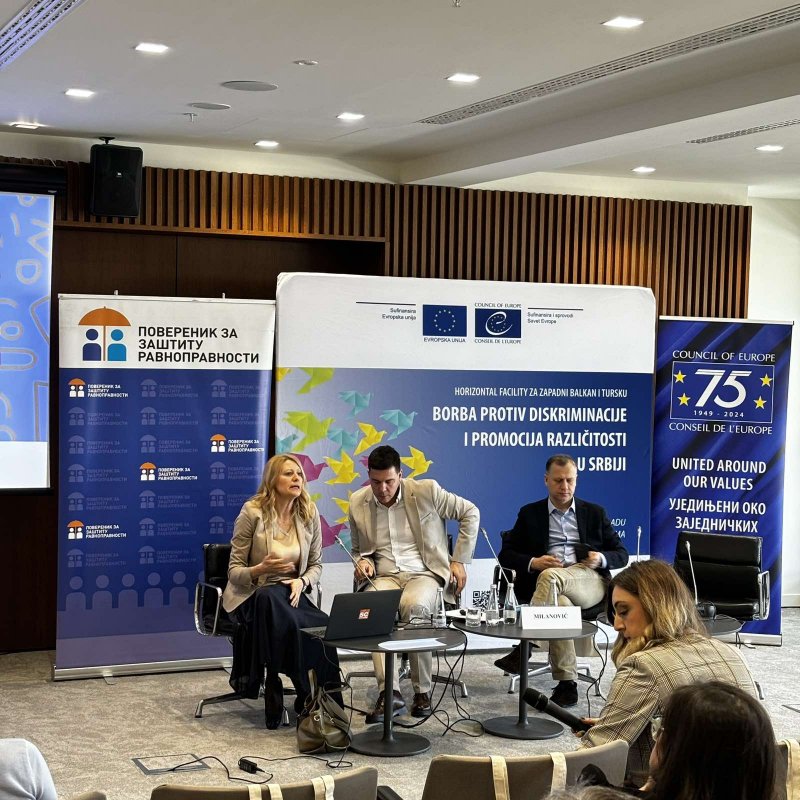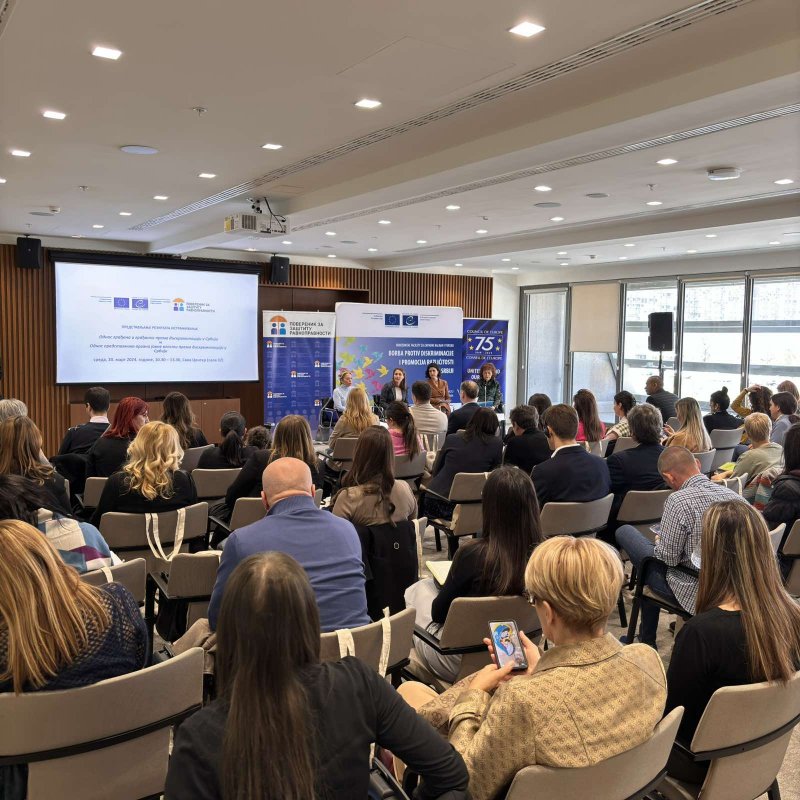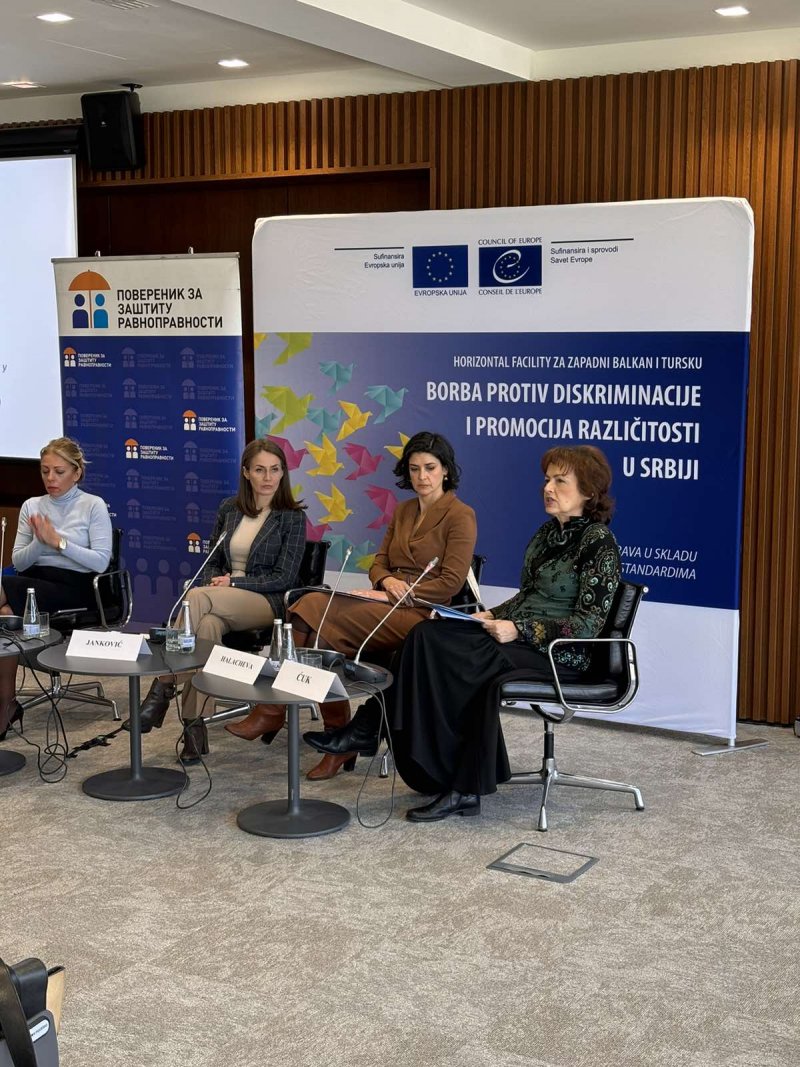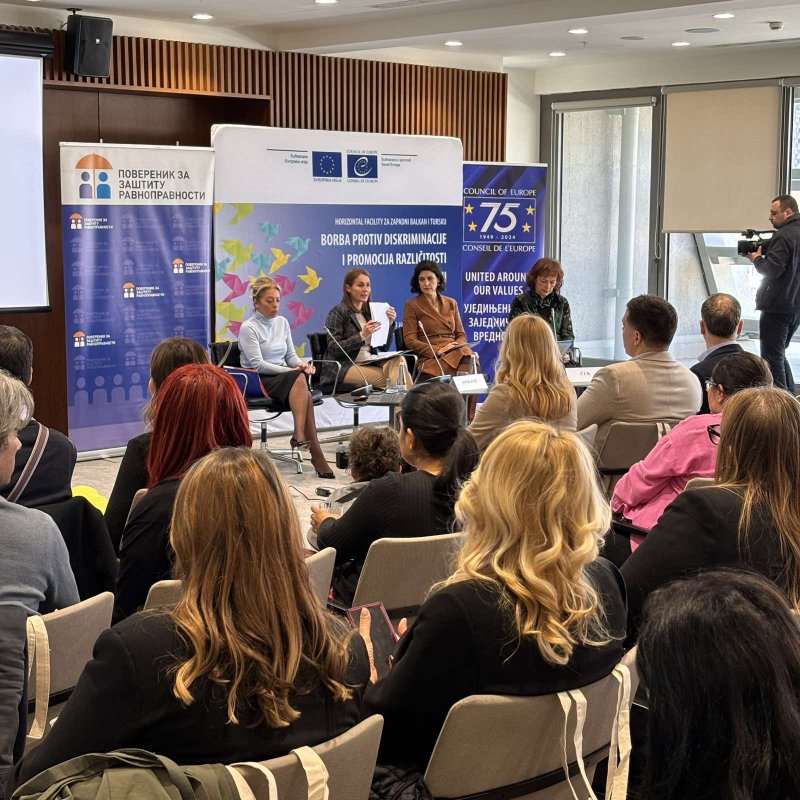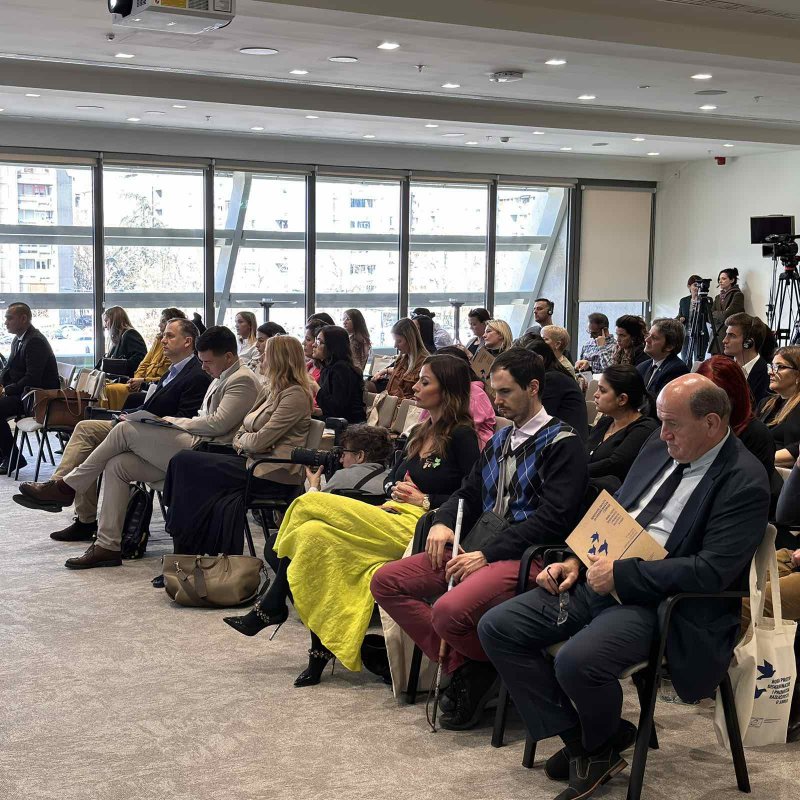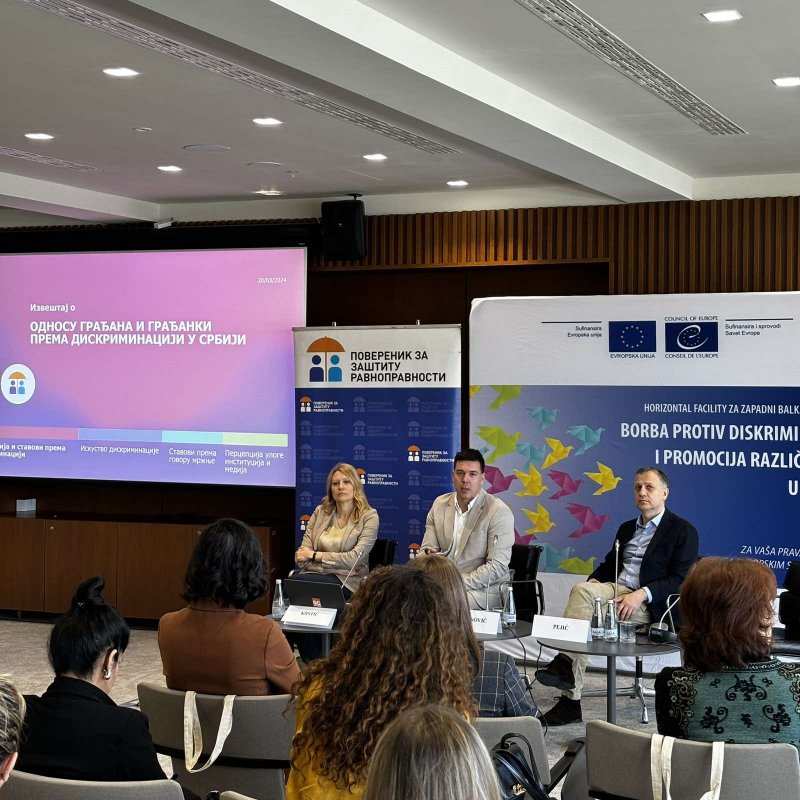The Commissioner for the Protection of Equality conducted the research “Attitude of citizens on discrimination in Serbia” and “Attitude of representatives of public authorities towards discrimination” with the support of a joint project of the European Union and the Council of Europe. Combating discrimination and promoting diversity in Serbia” as part of the “Horizontal Facility for the Western Balkans and Turkey” program. This is the seventh time that such research has been conducted, the last one being done three years ago.
Research on the attitude of men and women about discrimination in Serbia shows that, according to the respondents’ perception, the poor, Roma and women are the most discriminated against, while employment, education and healthcare stand out as the areas where there is the most discrimination.
A higher degree of recognition of discrimination and the necessity of sanctioning discriminatory behavior is evident among citizens. Respondents’ answers also indicate that there is social distance towards certain social groups. Unfortunately, according to citizens’ perception, there was no significant reduction in discrimination, but we at the institution are encouraged by the fact that citizens, not in a small percentage, are familiar with the work of the Commissioner and know that there is a mechanism to protect against discrimination. It is evident that the citizens’ perception of the most discriminated social groups coincides with the practice of the Commissioner and the complaints received by the institution. All this tells us that all authorities must aim additional measures and activities to improve, first of all, the position of the poor, Roma and women, but also of all other citizens, said Commissioner for the Protection of Equality, Brankica Janković.
The analysis of responses on the prevalence of discrimination against specific groups shows that the largest number of respondents believe that it is very much or mostly present against Roma (61), women (50), the elderly (44), migrants (43), people with HIV/AIDS (41%) and asylum seekers (37%). When the question of the presence of hate speech is raised, the largest number of respondents believe that such speech is very often and frequently present on social networks (74%), in political speech (72%), on television and internet portals (67% each), as well at sporting events (66%) and in everyday speech (61%). The largest percentage of respondents believe that the media does not pay enough attention to discrimination (71%).
Although negative attitudes about gender inequality are less pronounced in the sphere of work, education and politics, family life is still an area with traditional perception of gender roles. The survey states that 49% of respondents believe that family life suffers when a woman has a full-time job.
In addition to insight into the changes in the attitudes of men and women towards discrimination in Serbia, the research also offers the possibility of comparing perceptions with citizens in EU countries about the degree of prevalence of discrimination and attitudes towards different groups. The most common situations of discrimination, both in Serbia and in the EU, are work, employment, and access to public areas.
The research “Attitude of representatives of public authorities towards discrimination in Serbia” showed some positive and some negative tendencies compared to the research conducted in 2013 and 2018. One third of the respondents representing public authorities do not know whether discrimination is prohibited in Serbia, which is a significant decrease compared to the survey from 2018. Over two-thirds of the respondents stated that discriminatory attitudes of their colleagues are not tolerated, which is more than in the survey from 2018. Also, the respondents, representatives of public authorities, rate relatively positively the engagement of the state in combating discrimination, and give the lowest rate to equal treatment of all citizens by courts and prosecutors.
